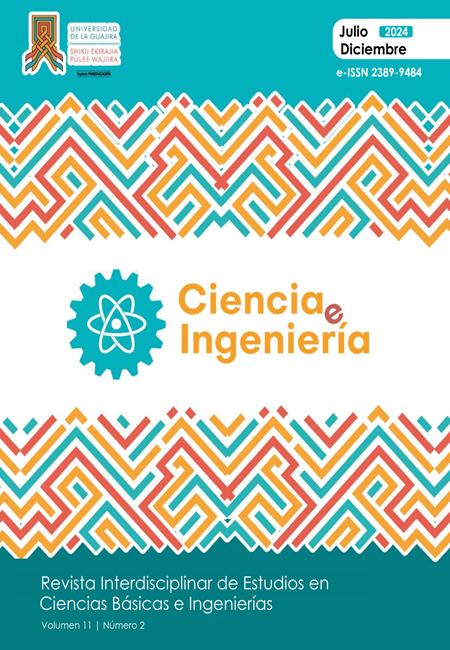Abstract
This study evaluated the efficiency of commercial and laboratory-isolated microorganisms in organic matter degradation and their impact on the growth of Phaseolus vulgaris (common bean). The research was conducted in Boca Parita, Monagrillo, and Chitré, in the Herrera province, Panama. Trichoderma sp., Rhizobium sp., and mycorrhizae were isolated from local soil and applied as biological treatments in P. vulgaris seedbeds. Significant differences were found among treatments, with the mixture of microorganisms being the most effective in promoting plant growth, followed by Rhizobium sp. and mycorrhizae. Trichoderma sp. showed the least effectiveness. Both the mixture of microorganisms and Rhizobium sp. and mycorrhizae demonstrated a great capacity to increase crop foliage. Treatment with the mixture of microorganisms also resulted in the highest fresh weight of plants, suggesting better water retention in plant tissues. These results highlight the potential of microbial biofertilizers to improve the growth and development of P. vulgaris, offering a sustainable alternative to chemical fertilizers in agriculture.
References
Ayres, M., & Junior Ayres, M. (2000). BioEstat 2.0: aplicações estatísticas nas áreas das ciências biológicas e médicas. In BioEstat 2.0: aplicações estatísticas nas áreas das ciências biológicas e médicas (pp. xii-259).
Babu, S., Prasanna, R., Bidyarani, N., Nain, L., & Shivay, Y. S. (2015). Synergistic action of PGP agents and Rhizobium spp. for improved plant growth, nutrient mobilization and yields in different leguminous crops. Biocatalysis and Agricultural Biotechnology, 4(4), 456-464.
Cruz-Cárdenas, C. I., Zelaya Molina, L. X., Sandoval Cancino, G., de los Santos Villalobos, S., Rojas Anaya, E., Chávez Díaz, I. F., & Ruíz Ramírez, S. (2021). Utilización de microorganismos para una agricultura sostenible en México: consideraciones y retos. Revista mexicana de ciencias agrícolas, 12(5)1.
González, A., Pérez, M., & Sánchez, L. (2020). Caracterización agrícola de la provincia de Herrera, Panamá. Revista Panameña de Agronomía, 15(3), 78-95.
Korir, H., Mungai, N. W., Thuita, M., Hamba, Y., & Masso, C. (2017). Co-inoculation effect of rhizobia and plant growth promoting rhizobacteria on common bean growth in a low phosphorus soil. Frontiers in plant science, 8, 141.
Kumar, M., Leo, J., Parsia, B., Sattler, U., & Al-Emari, S. (2019). A Systematic Review of Automatic Question Generation for Educational Purposes. International Journal of Artificial Intelligence in Education, 30, 121–204.
Madhaiyan, M., Peng, N., Te, N. S., Hsin I, C., Lin, C., Lin, F., & Ji, L. (2013). Improvement of plant growth and seed yield in Jatropha curcas by a novel nitrogen-fixing root associated Enterobacter species. Biotechnology for biofuels, 6, 1-13.
Ministerio de Desarrollo Agropecuario de Panamá [MIDA]. (2022). Informe técnico sobre la calidad de suelos agrícolas en la provincia de Herrera. Gobierno de Panamá.
Moreno Reséndez, A., Carda Mendoza, V., Reyes Carrillo, J. L., Vásquez Arroyo, J., & Cano Ríos, P. (2018). Rizobacterias promotoras del crecimiento vegetal: una alternativa de biofertilización para la agricultura sustentable. Revista Colombiana de Biotecnología, 20(1), 68-83.
Puyam, A. (2016). Advent of Trichoderma as a bio-control agent-a review. Journal of Applied and Natural Science, 8(2), 1100-1109.
Romero López, T. de J., & Vargas Mato, D. (2017). Uso de microorganismos eficientes para tratar aguas contaminadas. Ingeniería Hidráulica y Ambiental, 38(3), 88-1002.
Rodríguez, J., & Martínez, E. (2021). Diversidad edáfica y su impacto en la investigación agrícola: caso de estudio en la región de Herrera. Suelos y Ecosistemas, 8(2), 112-130
Santos Sousa, W., Soratto, R. P., Peixoto, D. S., Campos, T. S., da Silva, M. B., Souza, A. G. V., ... & Gitari, H. I. (2022). Effects of Rhizobium inoculum compared with mineral nitrogen fertilizer on nodulation and seed yield of common bean. A meta-analysis. Agronomy for Sustainable Development, 42(3), 52.
Sudha, G., Barik, A., Sen, S. K., & Raut, S. (2020). Degradation of dyes by fungi: an insight into mycoremediation. Journal of Biotechnology, Computational Biology and Bionanotechnology, 102(4), 445–455.
Urgiles Gómez, N. de J., & Aguilar Asanza, J. C. (2023). Evaluación de biofertilizantes de micorrizas nativas y comerciales en el cultivo de fréjol (Phaseolus vulgaris L.), en la quinta experimental la Argelia. Loja, Ecuador. Universidad Nacional de Loja.
Verma, J. P., Yadav, J., Tiwari, K. N., & Lavakush Singh, V. (2010). Impact of plant growth promoting rhizobacteria on crop production. International Journal of Agricultural Research, 5(11), 954-983.
Wolfe, E. R. (2021). Microbes on the Mountain: Plant–Microbe Associations and Interactions on Mount St. Helens (Doctoral dissertation, Portland State University).
Zhang, J., Wang, N., Li, S., Wang, J., Feng, Y., Wang, E., ... & Chen, W. (2023). The effect of different rhizobial symbionts on the composition and diversity of rhizosphere microorganisms of chickpea in different soils. Plants, 12(19), 3421

This work is licensed under a Creative Commons Attribution-NonCommercial-NoDerivatives 4.0 International License.
Copyright (c) 2024 Lisdiali Navarro, Angeline Ortega, Alexis de la Cruz, José Rogelio Fung Corro


